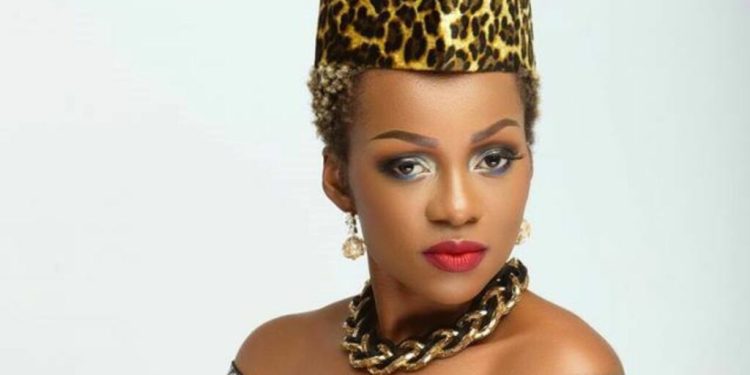Popular Bikutsi singer Mani Bella finds herself engulfed in a storm of public criticism following the release of her latest song, “Dagobert,” which has been widely condemned for its explicit and obscene content.
The controversial song, released last week, has been scrutinized for its graphic depiction of sexual positions, with Mani Bella openly acknowledging that the piece serves as a tribute to men who satisfy their partners in bed.
The artist’s decision to distribute the song via unconventional channels, such as private copies through WhatsApp, further adds to the controversy surrounding “Dagobert.”
Despite facing a barrage of negative feedback from the public, Mani Bella remains undeterred, actively promoting the contentious piece by sharing videos of individuals dancing to the song on her Facebook page.
The public outcry has reached such heights that Cameroon’s state broadcaster, CRTV, organized a televised debate addressing the broader issue of “Depravity of morals and obscenities in Cameroonian music.”
Although CRTV refrained from directly referencing Mani Bella’s song in the debate announcement, the artist felt she was being directly attacked for her new song.
In a post that featured the CRTV flier, she wrote: “With all the great respect I owe you, after this one, I hope the title of the next show will be: the problems of NoSo and, the state of some Cameroon roads.”
This exchange between Mani Bella and CRTV underscores the intense scrutiny the artist is facing.
Surprisingly, fellow Bikutsi singer Lady Ponce has rallied behind Mani Bella, openly supporting the controversial song.
Lady Ponce, in a social media post, described “Dagobert” as a Christmas gift, despite its explicit content.
She also posted a full video of the song on her Facebook page.
This unexpected alliance has added another layer to the ongoing debate surrounding the boundaries of Cameroon.
However, not all reactions have been supportive.
Richard Bona, a prominent US-based Cameroonian musician and instrumentalist, publicly criticized Mani Bella for promoting obscenity.
In a scathing post, Bona condemned the song as an “infirmity of the soul” and vowed to block those endorsing its sensational content.
As of now, “Dagobert” has yet to find a place on mainstream streaming platforms and had not been posted on Mani Bella’s YouTube channel.
Journalist and social critic Arol Ketch expressed his stern disapproval of obscenity in Cameroonian music, especially the Bikutsi genre.
He lamented the perceived degradation of Bikutsi—a cherished Cameroonian music genre—by what he termed “songs of Sodom and Gomorrah.”
“As a result of the missteps of a group of vulgar majorettes, Bikutsi is now perceived in the popular imagination as a depraved rhythm; promoting pornography,” Ketch wrote.
“The productions of these misguided artists who claim to be doing Bikutsi only revolve around the lower abdomen, the phallus, sex… In short, pornography.”
The controversy surrounding “Dagobert” has reignited the conversation on obscenity in Cameroonian music, with the Cameroon Music Corporation (SONACAM) having previously taken a stand against obscene content in 2021.
Nevertheless, some artists, including Coco Argentee, have previously defended the use of sexual themes in music, arguing that it is a means of educating the younger generation.
Mani Bella’s provocative song has again thrust the issue of obscenity into the spotlight.
It raises questions about artistic freedom, societal norms, and the responsibility of musicians in shaping cultural perceptions.



